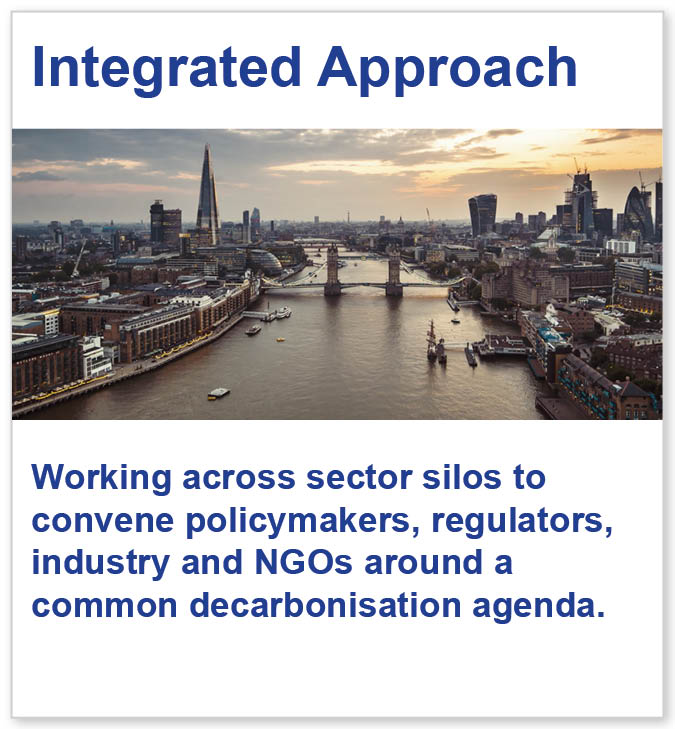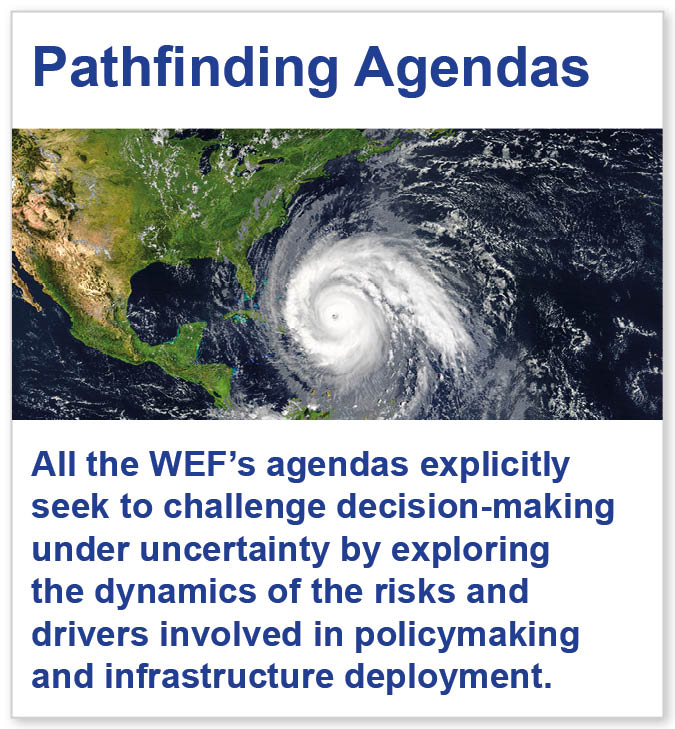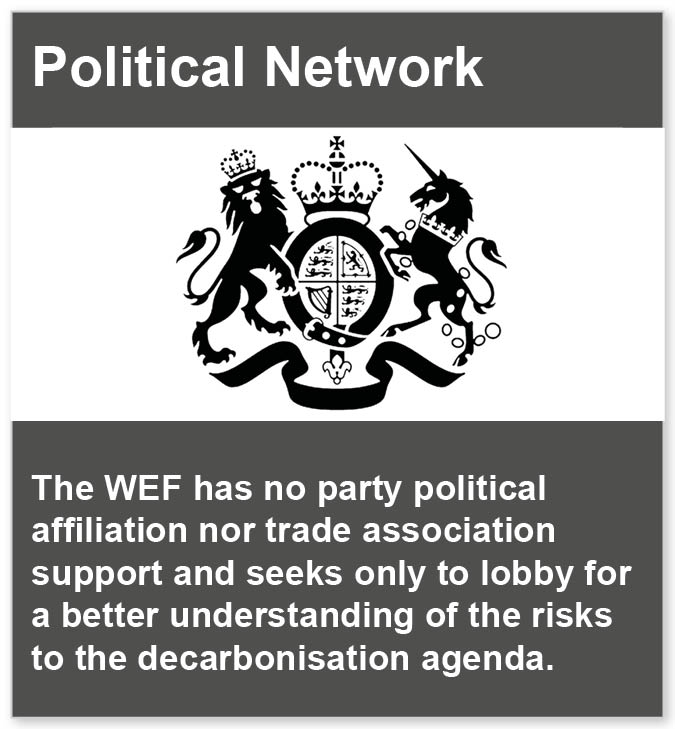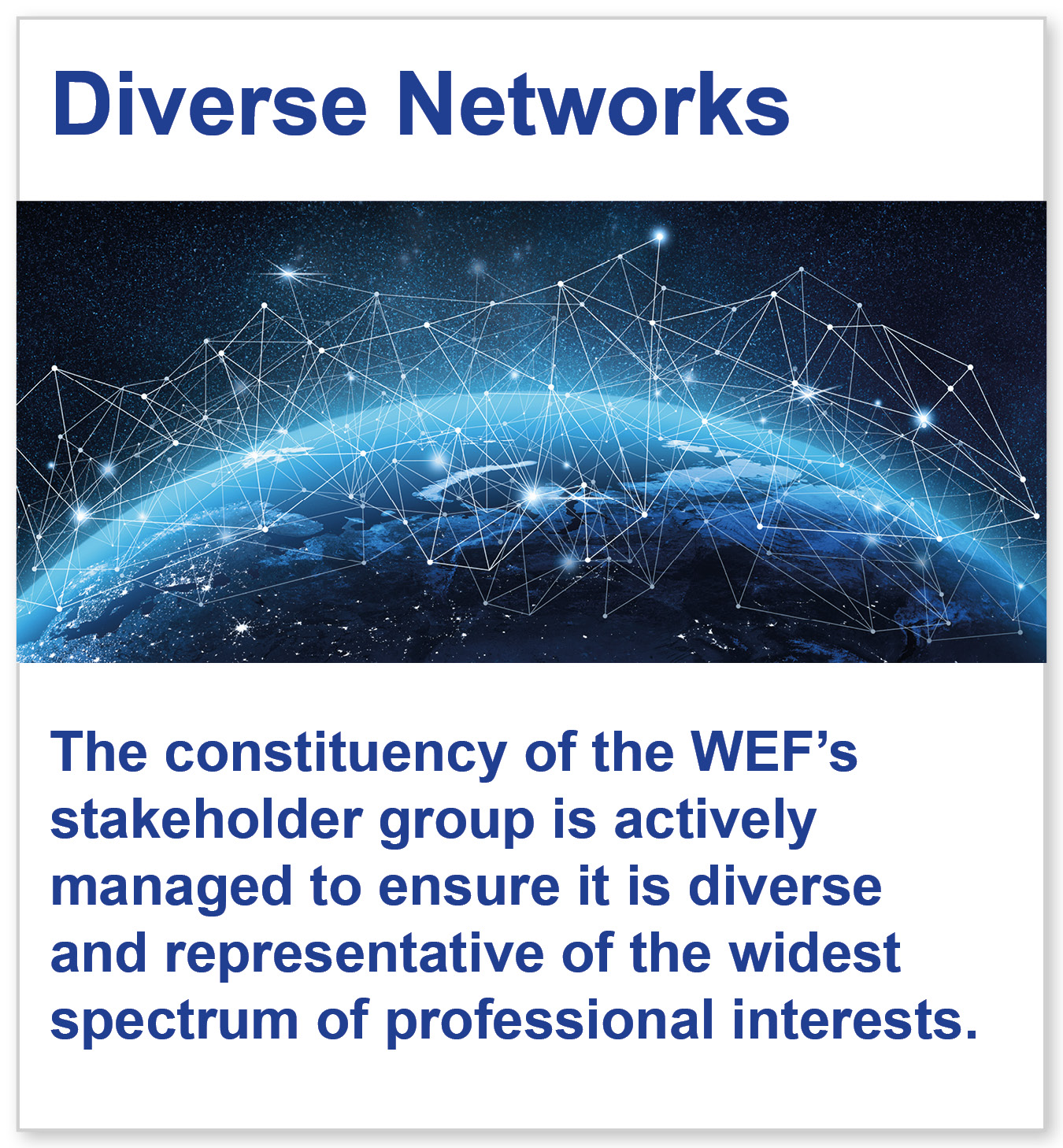
A current WEF Value Proposition (5 min read) may be downloaded here as a PDF.

About
The Westminster Energy Forum (WEF) provides unique value for senior-level stakeholders in government, and in the wider energy and climate arena, by addressing the UK’s strategic challenges in a cross-silo, integrated manner, evaluating both emerging threats to the delivery of energy and climate policy and infrastructure, and / or opportunities for its innovation and development.
The overarching nature of the WEF programme cuts across typical sector 'silos' to provide insights that aim to be 'pathfinding' in nature, thereby helping to facilitate a wider understanding of the prevailing and emerging risks affecting long term decarbonisation.
Operational support comes from the industry value chain via a limited set of annual subscriptions that enable the WEF to convene an equal number of experts from the public sector, diplomatic and NGO domains free of charge, ensuring that the WEF can convene the right balance and mix of personnel while remaining unbiased and free of lobbying.
An active list of c.1000 experts in the UK and overseas is maintained across 150+ organisations to form the WEF's strategic intelligence network. After nearly 20 years of operations the WEF has become a trusted and reliable partner for decision-makers with a deep and extensive network of participants both in the UK and internationally. All our seminars and webinars are hosted by various WEF members through the political year, with all event outputs made freely available to the WEF network.

Strategic Themes that define the WEF Programme
The WEF programme is based on powerful, qualitative gap analysis to identify which emerging risk issues need extra focus and debate for the benefit of all stakeholders. It gives senior civil servants a guaranteed forum in which to brief, and to exchange ideas in confidence, with a well-informed industry and NGO constituency, creating many opportunities for B2G and B2B follow up outside of typical trade association or commercial conference-type environments.
Programme:
A set of nine ‘Mission Critical' Themes underpin the WEF Programme, driving an issue register which considers the UK in an integrated, international context. These issues, in turn, inform the emphasis of our Programme agendas throughout the year. The nine cross-cutting themes are:
- Global Energy, Climate and Geopolitical Trends, and National Security Implications
- Derailment Risks to Resilient Global and UK Energy Transitions
- Systemic and Cascading Risks from Climate and Nature Changes, and their Impact Attribution
- Energy Market Trends, and Implications of (Geo)Political and Economic Competitions
- Global Investment Trends and Challenges for the Transition, and their Risk Mitigants
- Disruptive Technologies, Infrastructure Resilience and Energy Market Implications
- Critical Mineral Competitions and Supply Chains for Strategic Transition Resources
- Policy Pathways and Regulatory Enablers towards UK Net Zero
- Challenges to the Evolution of Resilient UK Onshore and Offshore Energy Systems
The WEF Programme deliberately addresses this complex range of strategic challenges to the transition in a cross-silo, cross-sectoral manner. This ‘overwatch’ approach and capability add value by generating insights that help to evaluate better the emerging threats to, and opportunities for, our stakeholders in the design and delivery of related policies, services and infrastructure.
The 2026 Programme comprises our 21st year of operations. On the website you can view the current lists of our 75 WEF Corporate Members along with our wider Knowledge Transfer Network which is made up of an equal number of governmental, regulatory, diplomatic and NGO organisations to whom we have always provided our services pro bono. The WEF does not accept sponsorship, nor does it engage with media or lobbying organisations.

Coordination with Key Public Sector Agencies
We liaise regularly with up to 50 Directors within key public sector agencies, typically government departments and regulatory bodies, to consider the kinds of emerging issues that would benefit from broader discussion by policymakers, industry, NGOs et al. In this way the WEF delivers a programme that is collaborative, relevant and forward-looking.
Key governmental bodies who engage with the WEF include: DESNZ, FCDO, MOD, HMT, DIT, DEFRA & Cabinet Office.
Regulatory contacts who are part of the Programme include: Ofgem, OGA, ONR, NDA, Environment Agency and HSE, and others with a central role such as the Bank of England.

Delivering Value for Participants in the WEF Network
The WEF maintains a deep understanding of emerging and strategic issues at policy level in order to define relevant agendas that effectively analyse climate risks and energy transitions for a wide expert network.
Successfully pathfinding the risks and opportunities to a clean energy transition is achieved by actively integrating experts from across a wide range of different interest groups, and by maintaining multiple points of contact at senior level in all organisations within the WEF network.
The WEF is trusted and valued by government, regulators and the wider sector that it serves, ensuring an appropriately diverse approach to representation on its panels.
The WEF constituency is well-established, including 150 organisations and a 50:50 public-private sector split overall, forming a diverse and well-informed group of practitioners who form a knowledge transfer network that is material to the design and delivery of policy and infrastructure.
WEF allows places to be used transferrably within participating organisations, and we seek to maintain the costs of WEF membership for corporates at well below commercial event rates so that we cover our operational costs while delivering optimal value for time and money for everyone involved.